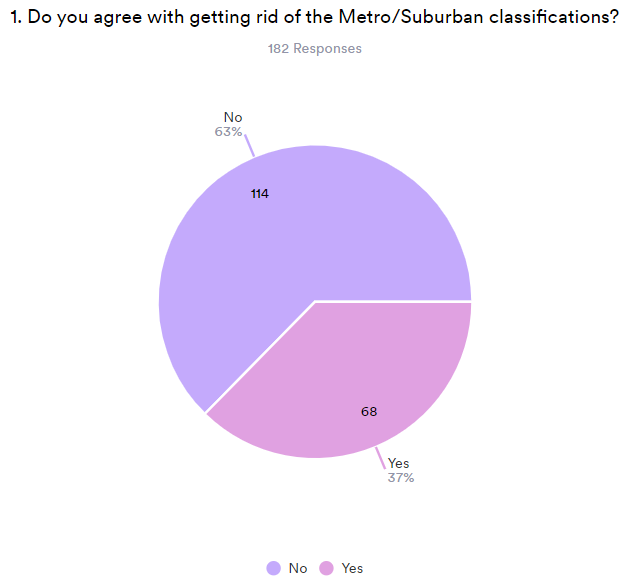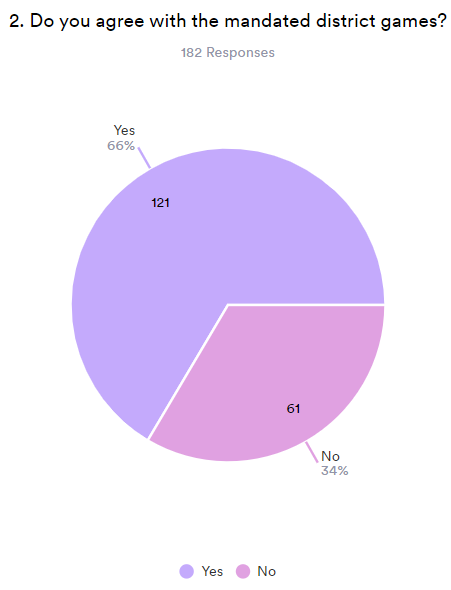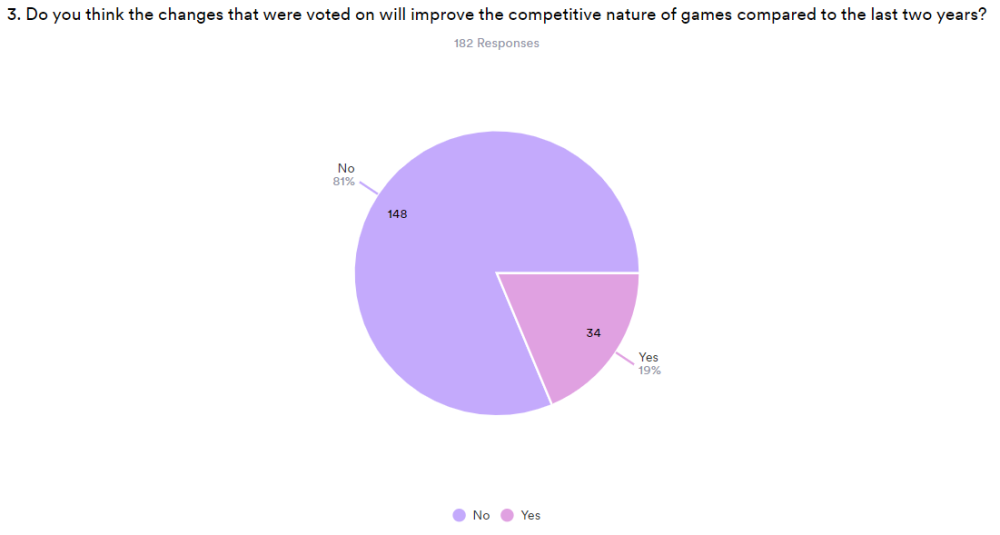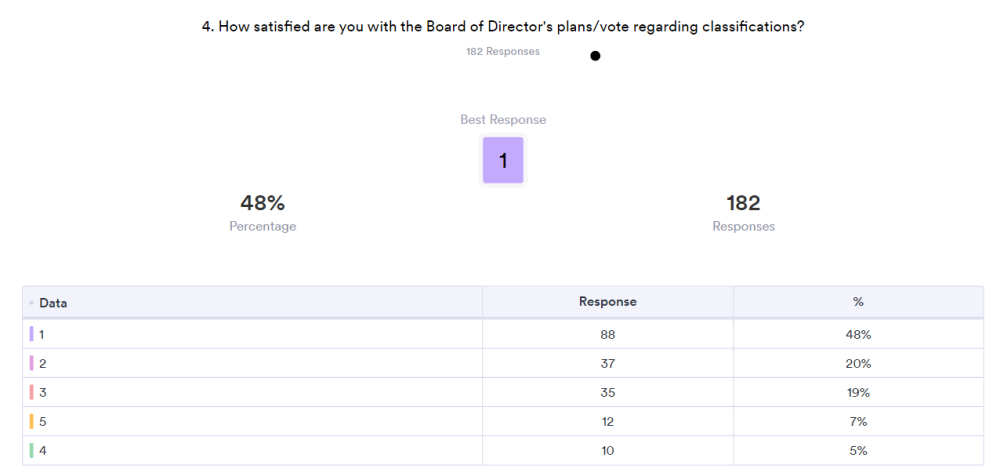GAINESVILLE, Fla. – After the Florida High School Athletic Association (FHSAA) voted to change the classification system on December 12 it took a lot of football coaches by surprise at how quickly things changed once more after two years of Metro-Suburban classifications.
As such, FloridaHSFootball.com reached out to coaches around the state to get their thoughts and opinions, and nearly 200 football coaches from all corners of the state including a good mix of Metro, Suburban, and Rural classifications voicing their opinions about the changes and how they felt about what is happening.
With the survey, we asked the coaches four questions, plus allowed them to express their thoughts and opinions. We allowed all coaches who expressed comments to either share them fully with their names included or choose to remain anonymous. Some coaches chose to provide us with comments but did not want them published at all and as such we will respect those comments with those coaches.
Overall, the comments provided a lot of insight into how one of the largest shareholders in Florida was feeling about all the changes when football coaches around the state were promised that no changes would be made to football for a long while.
Without further ado, let’s review the results of the survey we have had with coaches:
1. Do you agree with getting rid of the Metro/Suburban classifications?
 Overall, 63% of respondents to the survey said No, they disagree with getting rid of the Metro/Suburban classifications. That contrasts with 37% agreeing with the FHSAA in getting rid of the Metro/Suburban classifications.
Overall, 63% of respondents to the survey said No, they disagree with getting rid of the Metro/Suburban classifications. That contrasts with 37% agreeing with the FHSAA in getting rid of the Metro/Suburban classifications.
JOSH’S ANALYSIS: This seems to swing even further to those that didn’t want Metro/Suburban to go in comparison to the survey results in the FHSAA had from a survey of member schools showing that while 169 schools were satisfied with Metro/Suburban which equated to 43% out of 391 responses. What tends to lend more to the swing of this is the fact the FHSAA did not listen to their biggest group of shareholders, the member schools that there was nearly 20% saying they were not sure how they felt about Metro/Suburban classifications. 37% of respondents to the FHSAA survey for member schools were not satisfied with Metro/Suburban classifications which that number lines up closely to the coaches that told us they agree with the FHSAA getting it right in getting rid of Metro/Suburban. Based on this result here in question one, the FHSAA got it wrong in changing up the classification system, and the boat was missed big time in listening to the biggest group of shareholders, the football coaches. As such, the FHSAA did not have a mandate for getting rid of the Metro/Suburban classification system and now many coaches are angry about that.
COACH’S QUOTE: “Policy was not followed. The proposal was broken up so it would pass, we couldn’t do that before. It did not go through the advisory committees. The Executive Director made a new committee, not elected by their peers, but handpicked by him to pass his agenda. It was a gross misuse of power. The meeting was an embarrassment. There was no data to back their proposal. Totally ridiculous. Bypassed every procedure we had to go through to pass Metro/Suburban. The “Open Division” is only being presented because they see potential TV Revenue, not what is best for kids,” – Price Harris, Madison County Head Coach
EDITOR’S NOTE: Price Harris was one of the Football Advisory Committee members who voted unanimously back in January 2022 to pass the Metro/Suburban classification proposal that would eventually be endorsed by the Athletic Director’s Advisory Committee and then voted for approval by the FHSAA Board of Directors back in February of 2022.
2. Do you agree with mandated district games?
This one shows a little bit clearer majority with 66% of coaches that responded saying they support the mandate of district games compared to 34% of coaches responding saying they did not agree to the mandated district games.
JOSH’S ANALYSIS: The FHSAA proposed getting rid of district games as part of the initial proposal of scrapping Metro/Suburban classifications in the push for an Open Division system that would have resulted in teams being placed in a district but without a district mandate to play the teams assigned to the district. Some coaches expressed they were hoping the FHSAA would get rid of the district mandate and align it with all the other team sports that have districts, but not a required district schedule. The FHSAA did not ask this of member schools when they surveyed them about their thoughts on mandated district games. At this conclusion, it seems clear that 2/3 of the coaches that responded are happy about the mandate for district games.
COACH’S QUOTE: “I like mandated district games versus the proposal of the tournament. I think a lot of teams would have had to scramble at the end to schedule games. Some may potentially lose a home game and money. Not getting 10 full games scheduled is also a possibility. Additionally, I think to be a true district champion, you should have to play all of the teams in your district.” – Darren Nelson, Estero Head Coach
MORE: SURVEY SAYS – PART II: The best of the best in comments from coaches who completed our survey
3. Do you think the changes that were voted on will improve the competitive nature of games compared to the last two years?
 A resounding 81% of the coaches that responded said no, they did not think the competitive nature of games would improve. Only 19% of coaches said that they think the changes will improve the competitive nature of games.
A resounding 81% of the coaches that responded said no, they did not think the competitive nature of games would improve. Only 19% of coaches said that they think the changes will improve the competitive nature of games.
JOSH’S ANALYSIS: This is a big one that we feel the FHSAA should pay attention to. The competitive nature of games is a key thing for coaches and when 81% of the coaches surveyed (even if it is not all 560-plus 11-man teams) are saying the vote to change the classification system in football will not improve the competitive nature of games compared to the last two seasons is a red flag for why the changes were even brought to the table to start with. When we look at the past two years where the number of one-score games has increased especially in the playoffs and the fact that only two state championship games out of 18 total state championship games played under the Metro/Suburban classification system had running clocks, that speaks loudly that coaches felt things were trending in a direction they wanted to see. Now with this information in hand, do not be shocked when coaches speak up at the end of the 2024 season and say we saw this coming from the moment the vote happened.
COACH’S QUOTE: “I feel like the last two seasons were the most competitive seasons we have had in a while. With the new changes, there will be teams playing other teams that they have no reason sharing a field with. It is going to make running clock games more prevalent which isn’t good for anyone. Also mandating teams to play their district games will hurt our strength of schedule in some instances.” – Anonymous Class 2S Head Coach
4. How satisfied are you with the Board of Director’s plans/vote regarding classifications?
Using a scale of 1 to 5 to gauge the response in how satisfied coaches were with the Board of Directors plans/vote on the classification changes, using 1 as not satisfied at all and 5 as very satisfied, 48% of the coaches that responded to the survey said they were not satisfied at all, with 1 being selected. The second most responded to number was 2 meaning they were mostly dissatisfied with the way the plans and voting went. The selection of very satisfied which was 5 on the scale received only 7% of the response while 4 on the scale received 5% of the response. With 3 being the midway point of not being satisfied or satisfied, that response received 19% of the responses.
JOSH’S ANALYSIS: This is another huge point here showing that not listening to some of your largest shareholders will get you a negative response and this is exactly what we have here when the 1 and 2 responses drew a 68% response combined meaning, a lot of football coaches in Florida are not satisfied with the FHSAA, that should also be a red flag for the FHSAA to be looking at and bringing all the shareholders together to resolve an issue such as classifications and not what appears to have been a rushed plan and vote that is going to have ramifications for a very long time.
COACH’S QUOTE: “In my opinion, the vote was rushed and was not given the importance that it deserved. I do not believe that the members of the board truly understood what they were voting on, and they also did not seem engaged (one was driving while voting). The empirical data over the last two years has shown evidence that the Metro/Suburban model has largely accomplished what it set out to do; why not give it two more years to see if that data continues to hold true? A more prudent approach would have been to fix problems with it (rankings transparency) or add something of value (Open 8 format).” – Ariel Cribeiro, Goleman (Miami) Head Coach
FHSAA ADMINISTRATIVE SECTION BREAKDOWN
We took the surveys we received and broke down the results of our first question – “Do you agree with getting rid of the Metro/Suburban classifications?” – and compared that against the voting of the representatives on the Board of Directors in how the vote was recorded.
First here is a look back at how the Board of Directors voted:
YES VOTES
Trevor Berryhill – Section 2, Non-Public Schools
Monica Colucci – School Board Member (Section 4)
A. Jermaine Ford – Sections 3 & 4, Citizen At-Large
Thomas Kenna – Section 3, Public Schools
Jim Norton – Superintendent (Section 1)
Kimberly Richey – Senior Chancelor, FLDOE
Paul Selvidio – Section 3, Non-Public Schools
Ryan Smith – Section 4, Non-Public Schools
Alejandro “Alex” Tamargo – Section 4, Public Schools
NO VOTES
Sara Bayliss – Section 1, Non-Public Schools
Ricky Bell – Sections 1 & 2, Citizen At-Large
Charlie Marello – Section 1, Public Schools
Allen Shirley – Section 2, Public Schools
RESPONSE BREAKDOWN
SECTION 1: Disagreed – 81% (39 responses); Agreed – 19% (9 responses)
SECTION 2: Disagreed – 78% (36 responses); Agreed – 22% (10 responses)
SECTION 3: Disagreed – 50% (26 responses); Agreed – 50% (26 responses)
SECTION 4: Agreed – 64% (23 responses); Disagreed – 36% (13 responses)
JOSH’S ANALYSIS: Looking at the breakdown by each of the four FHSAA administrative sections, there was only one section that seemed to agree with the FHSAA Board of Directors in changing the classifications away from Metro/Suburban to the old classification system which was Section 4 which includes the three counties in South Florida (Palm Beach, Broward, Miami-Dade) along with Monroe County for the Keys. Outside of that Sections 1 and 2 overwhelmingly disagreed with the FHSAA Board of Directors for going away from Metro/Suburban classifications while Section 3 was split down the line, which would not result in a mandate to change things up as one representative for Section 3 said that Metro/Suburban “works best for our county” but voted for changing things up anyways despite what Section 3 voiced their opinions on.
CLASSIFICATION BREAKDOWN
In our survey, we were able to ask coaches which classification they were in for the 2022 and 2023 seasons under the Metro/Suburban classifications. In the graphic below you will see the responses we got which include those in the SSAA or Independent as we wanted to hear from those programs as well as the changes potentially impact programs at these levels of football as well.
 Once we removed the SSAA and Independent responses, as well as the rural classification responses away from the surveys, this is how the number of surveys fell between those in Metro classifications and Suburban Classifications:
Once we removed the SSAA and Independent responses, as well as the rural classification responses away from the surveys, this is how the number of surveys fell between those in Metro classifications and Suburban Classifications:
Metro Classifications – 61 responses (41%)
Suburban Classifications – 87 responses (59%)
JOSH’S ANALYSIS: While we would have loved to have a little bit better response from schools in the Metro Classifications, the response we did receive was still very solid, and overall, the responses we received gave us a good mix from all points of view from all corners of the state. The opinions we received with each survey gave us a good mix of thoughts and left us with a lot more questions to ask along the way.












